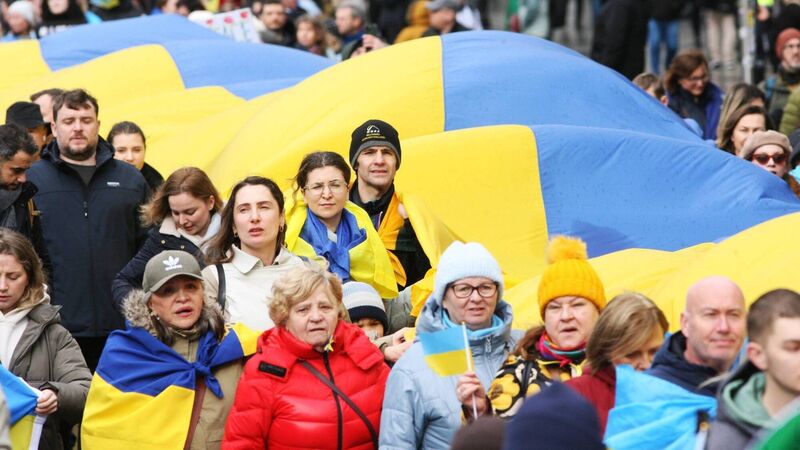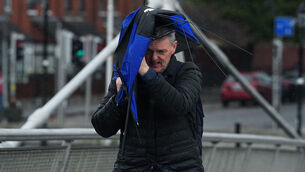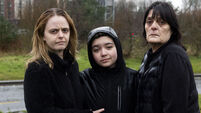The worst is not over for Ukraine, three years on from Russian invasion

To mark the third anniversary of Russia's invasion and continued attacks, Ukrainians and supporters rallied in cities all over Europe including on O'Connell St in Dublin, above. Picture: Padraig O'Reilly
On the third anniversary of Russia’s invasion of Ukraine, which has left hundreds of thousands dead and displaced millions across the world, humanitarian organisations have warned that the worst is not over for the beleaguered nation, even as diplomatic efforts ramp up.
With the Office of the United Nations High Commissioner for Human Rights (OHCHR) estimating officially that around 42,000 Ukrainian civilians killed in the past three years but conceding that number is likely far higher, Ukrainian president Volodymyr Zelenskyy said he was willing to give up his position if it meant peace in his country.













